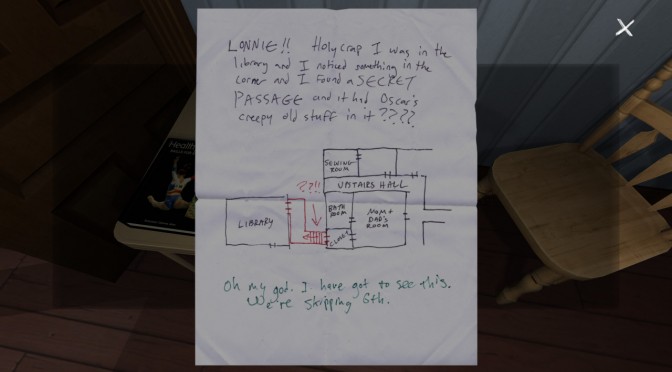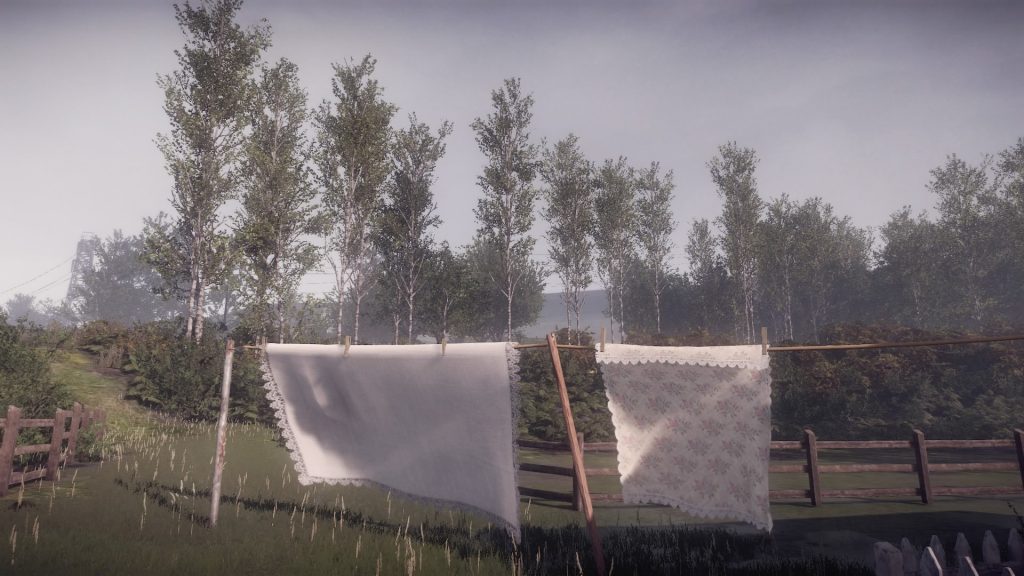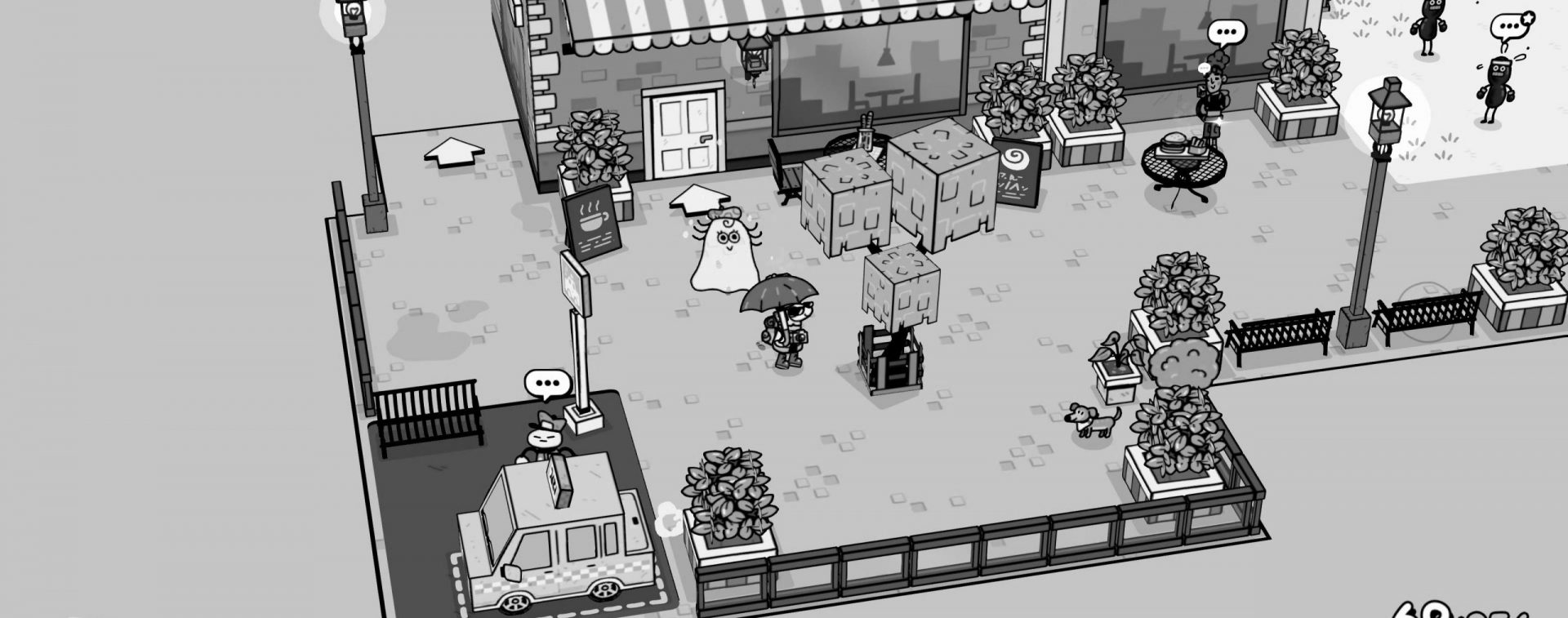(This suggestion from @SephyTheThird)
As it is topical, “Walking Simulators”.
I’m not sure why it is topical (even when he suggested it, I wasn’t sure either – perhaps I missed some game news somewhere), but I am sure that I strongly dislike the term “walking simulator”.
I hold my hands up as one of those people who has used it in the past, along with “non-game”, “gameplay-less gaming”, and “press up to win”, but I’ve come to appreciate the genre for the tales they tell more than the gameplay they provide – or don’t, as the case maybe. No, I now prefer the term I possibly coined as I don’t recall reading it anywhere else before I started using it[ref]Dammit! Someone beat me to it![/ref]: “Narrative Discovery Game”.
Back when I played Journey for the first time, I was quite derogatory about it in terms of being a game. There was no denying the excellent art style, charm and story (such that it was), but I struggled to call it a game. There’s a small amount of platforming, and a little bit of hiding, and perhaps two very simple puzzles, but most of it is simple push forwards and discover. At the time, I think I said it was a terrible game but a great experience.

Since then, I’ve come to accept this sort of title as a game genre in its own right. The game is to discover the narrative, in whichever way it provides as a method of doing that. In Gone Home, you gather notes, messages and items that tell the story of your family’s lives while you’ve been away. There’s little in the way of puzzle or interaction, it all comes down to exploring the house and reading and examining what you find. Some of the story will still elude you even after you’ve completed the game, but that’s OK as some is open to interpretation anyway, and there’s enjoyment in ruminating on what you discovered to fill in the gaps yourself, perhaps discussing with others who may have had a slightly different experience due to clues they missed or ignored.

Expanding on the open to interpretation theme, Dear Esther, another game I unfairly maligned as a non-game back in 2014, has even less in the way of interaction or freedom, and even more in the way of vagueness. Some things you find can be taken as literal, or alternatively as metaphor, and even after finishing the story I was still somewhat confused. I wrote more here, but ultimately it doesn’t matter what I made of what I found – I discovered a narrative, which may differ from the correct one but still fits. Perhaps, in this case, different possible interpretations are intentional.

The Stanley Parable is different again. Unlike the other three titles I’ve mentioned, the whole of The Stanley Parable is actually narrated, and you’re able to make choices as to whether to follow what the narrator is saying, or deviate. The game here is still to discover a narrative, however, but there are a number of narratives from the mundane to the surreal. Again, interaction is limited (you press buttons and open doors – that’s pretty much it) but you’re able to play through various outcomes. And it’s very, very funny.
I’ve played a few other games of this genre too, such as Dr. Langeskov, The Tiger, and The Terribly Cursed Emerald: A Whirlwind Heist, which was a little like The Stanley Parable but told a single, specific story. The Beginner’s Guide was very strange, even for an NDG (let’s hope that catches on, yes?), and taking the style to another extreme there’s Emily is Away.

There’s no walking at all in Emily is Away. Everything is played out in the form of Ye Olde AOL Messenger, as you and your friend Emily leave school and go to separate colleges, chatting online every so often, and dealing with the obvious attraction between them that never seems to blossom because sending instant messages does not a romance make. You get to choose different things to say, but (spoiler!) although this changes your “route” to the end, inevitably you drift apart regardless of your decisions. In your final conversation with Emily you can’t even say the words you want, as your character types them, deletes them, and says something stupid instead. It’s clever, and there’s a narrative to find (and make) through your choices. In a way it’s an adventure game, but because the ending is unchangeable and so your choices just change the middle of the story, I can’t really describe it properly as an adventure.
Other games which drift closer or further away from so called “walking simulators” than the likes of Dear Esther – which is probably the poster child for them – include Firewatch (it has adventure elements, but ultimately you can’t not reach the end), The Starship Damrey (some puzzles and even shooting, but the actual aim is to discover the story), Attack of the Friday Monsters, and even Little Inferno approaches it. Perhaps the pinnacle of the genre for me, so far at least (I’ve not played The Vanishing of Ethan Carter yet, which may come close), is Everybody’s Gone to the Rapture.
It has no puzzles. You can pretty much skip to the end. There are red herrings, lots of irrelevant stuff to look at, and so many Raleigh Burners it’s untrue. But: there’s an excellent narrative to discover, piece together, and interpret. In fact, there isn’t just the story of possible aliens inhabiting technology that arches the whole game, but there are so many substories involving the characters who have disappeared and some of these are even more interesting than the main one. From the serious to the mundane, some relating to The Event, others not. Relationships, loss, crisis of confidence, financial ruin, xenophobia. It’s Emmerdale crossed with Close Encounters of the Third Kind, and I loved almost everything about it. Not bad for a game from a genre I ridiculed not so long ago.

In Walking Simulators you may just walk, but that is missing the point. In a good one, you don’t even realise all you’re doing is walking. When you read a book, all you’re doing is reading but that isn’t the point, is it? The point is you’re absorbing the story as you read. Why can’t you do the same as you walk?
